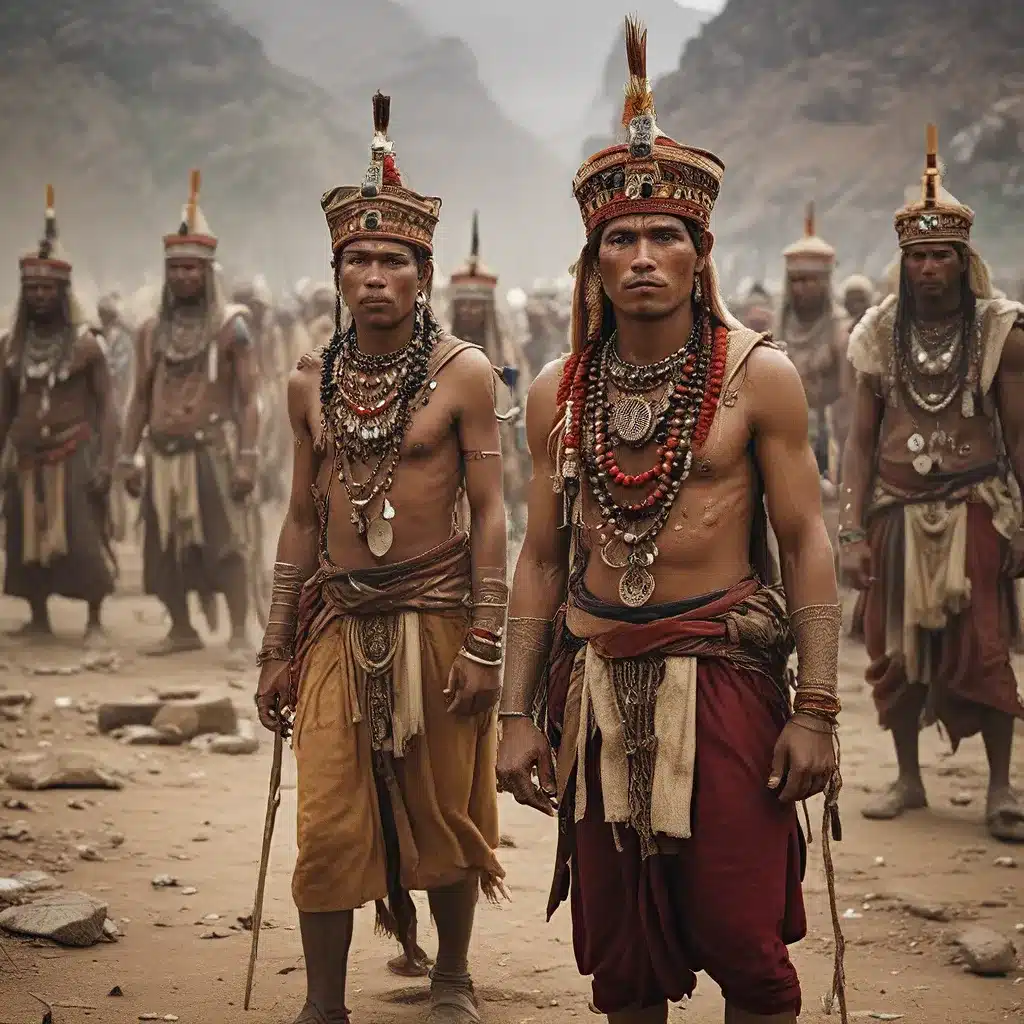
Unearthing the Mysteries of Ancient Civilizations
The study of ancient civilizations and their belief systems has long captivated historians, archaeologists, and curious minds alike. From the towering monuments of the Egyptians to the intricate rituals of the Mayans, these vanished societies have left behind a wealth of clues about their spiritual and cultural practices. By delving into the artifacts, texts, and architectural remnants uncovered by dedicated researchers, we can begin to unravel the mysteries that have long shrouded these remarkable cultures.
One of the most fascinating aspects of ancient belief systems is the diversity of religious practices that flourished across the globe. While monotheistic faiths like Christianity and Islam are dominant in many modern societies, the ancient world was marked by a vibrant polytheism, where deities of all shapes, sizes, and attributes were revered and incorporated into everyday life. The ancient Egyptians, for example, worshiped a pantheon of gods and goddesses, each with their own unique domains and hierarchies, while the Aztecs of Mesoamerica maintained an intricate system of ritualistic sacrifices and celestial observances.
Archaeological excavations have uncovered a treasure trove of artifacts that shed light on these ancient belief systems. Ceremonial masks, elaborately decorated temples, and votive offerings have all provided valuable insights into the ways in which these civilizations conceptualized the divine and their place within the cosmos. By carefully analyzing these material remains, researchers have been able to reconstruct the rituals, practices, and worldviews that were integral to the lives of these long-vanished peoples.
The Spiritual Dimensions of Ancient Societies
One of the most striking aspects of ancient belief systems is the centrality of spirituality to all aspects of life. Rather than relegating religious practices to a separate sphere, these cultures wove their sacred beliefs and ritual observances into the very fabric of their societies. The architecture, art, and social structures of ancient civilizations were all deeply influenced by their cosmological understandings and their perceived connections to the divine.
For sociologists, the study of ancient belief systems offers a unique window into the ways in which religion functions as a social institution. Émile Durkheim, one of the founding figures of modern sociology, argued that religion serves to bind a society together, providing a shared sense of identity and moral purpose. In the context of ancient civilizations, this social cohesion is evident in the communal rituals, shared mythologies, and hierarchical religious structures that were integral to the functioning of these societies.
Max Weber, another influential sociologist, highlighted the ways in which religious beliefs can also serve as a catalyst for social change. His seminal work on the Protestant Ethic and the rise of capitalism demonstrates how shifts in theological perspectives can have profound impacts on economic and political structures. Similarly, the religious reforms and cultural upheavals that often accompanied the rise and fall of ancient empires underscore the transformative power of belief systems.
Uncovering the Rituals and Practices of the Past
As researchers continue to unearth the material remnants of ancient civilizations, they are revealing an ever-richer tapestry of ritual practices and belief systems. From the elaborate funeral rites of the Egyptians to the divination rituals of the Mayans, these discoveries shed light on the deeply held spiritual convictions that animated the lives of these long-vanished peoples.
One particularly intriguing area of study is the role of shamanism and animism in ancient belief systems. Many pre-modern societies, such as the indigenous cultures of the Americas and Eurasia, maintained a worldview in which non-human entities, including animals, plants, and even inanimate objects, were imbued with spiritual significance and agency. The shamans or spiritual leaders of these societies were often seen as intermediaries between the human and non-human realms, using rituals and altered states of consciousness to commune with these unseen forces.
As Václav Havel eloquently observed, the rituals and belief systems of ancient societies were often a reflection of their deeper understandings of the human condition and our place in the cosmos. By studying these vanished worlds, we can gain valuable insights into the diverse ways in which humans have sought to grapple with the fundamental mysteries of existence, from the nature of the divine to the afterlife and beyond.
The Enduring Legacy of Ancient Civilizations
The belief systems and ritual practices of ancient civilizations continue to captivate and inspire scholars, artists, and spiritual seekers alike. As new archaeological discoveries and historical analyses emerge, our understanding of these vanished societies grows ever richer and more nuanced.
Perhaps most importantly, the study of ancient belief systems reminds us of the diversity and resilience of the human experience. Despite the dramatic changes that have reshaped our world over the millennia, the fundamental human need to grapple with existential questions and find meaning in the world around us remains a constant. By exploring the rituals and belief systems of the past, we can gain a deeper appreciation for the remarkable breadth of human ingenuity and creativity in the face of life’s most profound mysteries.
For those interested in diving deeper into the fascinating world of ancient civilizations and their belief systems, I encourage you to explore the rich resources available on The Lost Kingdoms website. There, you’ll find a wealth of expert analysis, interactive features, and captivating stories that bring these vanished societies to life, revealing the enduring significance of their rituals, practices, and worldviews in the modern era.


